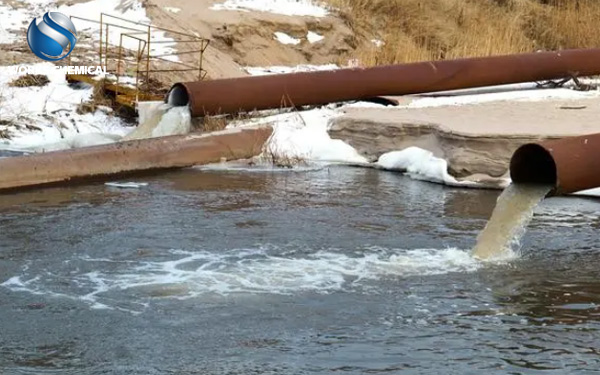
Sewage treatment plant sludge can choose a wide variety of sludge conditioners, the following are some common sludge conditioners and their characteristics:

A, flocculant
Polyaluminum chloride (PAC) :
Characteristics: An inorganic polymer coagulant, through adsorption bridging, electric neutralization and other mechanisms to aggregate sludge particles into larger clumps, convenient for subsequent settlement and separation.
Application: Suitable for a variety of sludge types, especially inorganic sludge.
Acrylamide (PAM) :
Properties: An organic polymer flocculant with excellent flocculation and dehydration properties.
Application: Widely used in municipal sewage, printing and dyeing, paper making, electroplating, chemical, leather and other industries of sludge dewatering treatment.
Two, dispersant
polyphosphate etc. :
Characteristics: Used to disperse the particles in the sludge, make it disperse evenly, avoid the formation of clumps, and improve the fluidity and miscibility of the sludge.
Application: In certain cases, such as when the sludge particles are too large or too viscous, the use of dispersants can improve the dewatering performance of the sludge.
Three, pH regulator
Hydrochloric acid, sodium hydroxide, calcium hydroxide, etc.
Characteristics: It is used to adjust the pH value of the sludge to make it in the appropriate range to improve the dewatering performance of the sludge and the subsequent treatment effect.
Application: According to the pH of the sludge, select the appropriate pH regulator to adjust.
IV. Oxidant
Hydrogen peroxide, potassium permanganate etc. :
Properties: Used to oxidize organic matter in sludge, promote its degradation and stabilization, and improve the dewatering performance of sludge.
Application: When the sludge contains a lot of organic matter, the use of oxidants can improve the dehydration efficiency of the sludge.
Five, sludge dewatering agent (sludge conditioner)
Organic sludge dehydrating agent:
Properties: Through synergistic action, the surface properties of sludge are changed, the specific surface area of sludge is reduced, the cell wall and membrane are destroyed and the intracellular water is released, and then the free water, bound water, capillary water and intracellular water in most biochemical sludge are removed.
Application: It is widely used in the dewatering treatment of all kinds of sludge, and has the advantages of less dosage of agents, low cost and good treatment effect.
Six, other sludge conditioner
Compound sludge conditioner:
Characteristics: Combined with the characteristics of a variety of sludge conditioners, it has a wider range of application and better treatment effect.
Application: According to the specific sludge type and treatment needs, select the appropriate composite sludge conditioner for treatment.
Selection suggestions
When selecting a sludge conditioner, it is necessary to consider the properties of the sludge, treatment objectives, process requirements and costs. It is recommended to carry out multiple sets of comparative experiments to select the reagents with low water content, low cost, small corrosion of equipment, and no or small increment of sludge. At the same time, the use of sludge treatment and sludge conditioner should be carried out under the guidance of professional and technical personnel to ensure the treatment effect and safety.
In summary, sewage treatment plant sludge can choose a wide variety of sludge conditioning agents, should be selected according to the actual situation for treatment.